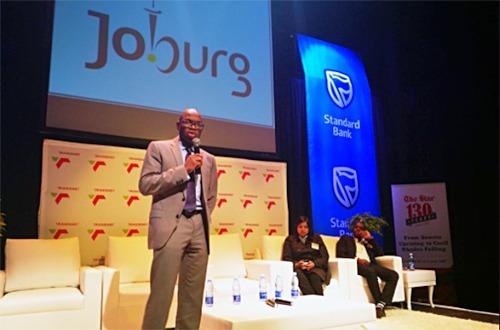
The various stakeholders in the entrepreneurship ecosystem, including investors, small business development agencies and the provincial government, need to work together in order to help develop township-based businesses and entrepreneurs.
This was the overall message expressed at the inaugural Gauteng Township Economy Business (GTEB) Week, held last week at the Soweto Theatre from 1 June to 4 June.
The event was an initiative of the South African Black Entrepreneurs Forum (SABEF), a non-profit organisation that aims to build and promote entrepreneurship. It saw various enterprise development and entrepreneurship organisations, funding agencies, investors as well as the Gauteng provincial government gather to discuss funding and skills development as well as promote township businesses and the township economy.
Speaking at the event was Minister of Small Business Development, Lindiwe Zulu. Other speakers included businessman Lebo Gunguluza of Dragon’s Den fame and president of SABEF; Lebane Maluleke, chief operating officer of the Gauteng Enterprise Propeller (GEP); Jayshree Naidoo, head of the Standard Bank incubator programme; Amanda Khoza, director of the transformation and inclusion department at Liberty Group; Mashudu Mannde, head of enterprise development at Transnet and Tebogo Ditshego, founder of public relations company, Ditshego Media.
The four day event kicked off with a media briefing during which the speakers, including Maluleke from GEP, addressed the challenges township businesses face and possible solutions.
The GEP is a provincial government agency launched in 2005. It aims to give micro businesses financial and non-financial support, and to integrate SMEs in the mainstream economy.
Red Tape and Competition From Foreign Nationals
Despite being job creators, many entrepreneurs continue to face lots of red tape, in particular business and tax registration, said the GEP’s Maluleke.
“You want to go into business and you tend to find that the process is tedious and long. You tend to get people who tell you in Singapore it takes you a short amount of time to start a business, register and get going. Rwanda is one of those countries that seem to be succeeding and growing even at a much faster [entrepreneurial] rate than the 5.4% that we have here. In a day two or three hours will be spent on business registration, tax registration everything will be done. We don’t have that as of yet in this country,” says Maluleke.
Maluleke also touched on the issue of the ongoing conflict between foreign-run and local township businesses, with local shopkeepers accusing foreign nationals of undercutting their businesses, and others of taking their jobs.
“How do you lose your business to someone who doesn’t know your community? You know your community better, you know your product. You know how you would sell,” he says.
Access To Market
Maluleke said their organisation was implementing programmes to solve some of these ongoing challenges, such as helping entrepreneurs gain access to markets, and to cut the red tape. They have launched a programme that makes use of busses driven around townships to help entrepreneurs with their business registration, as well as provide other services.
“Access to markets is very important. If I’m going to bring busses here [to the townships], you can walk into one, register your business for tax compliance and end up at the treasury database supplier, as compliant and you know that you comply and qualify for whatever the opportunities the government is going to make available.”
Above this, he also stressed the importance of prioritising SMEs in all government procurement in order to help these businesses compete.
“I like very much that the government is going into this – it’s not law as of yet like BEE which is law, but the programme I’m talking about is something called the set-aside. We’re now moving towards the set-aside where the government is going to say 30% of all the procurement that the government spends needs to go towards SMMEs,” Maluleke says.
“When that becomes law all the SMME suppliers listed on the government website will in a rotational manner, qualify for opportunities. It doesn’t make sense for [for example] Vusi, who is an IT specialist to respond to a tender and compete with Dimension Data, it doesn’t. For me, those are the simple and straight and directed programmes that we’re supposed to engage in and we’re moving in that direction with government.”






